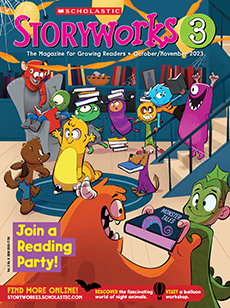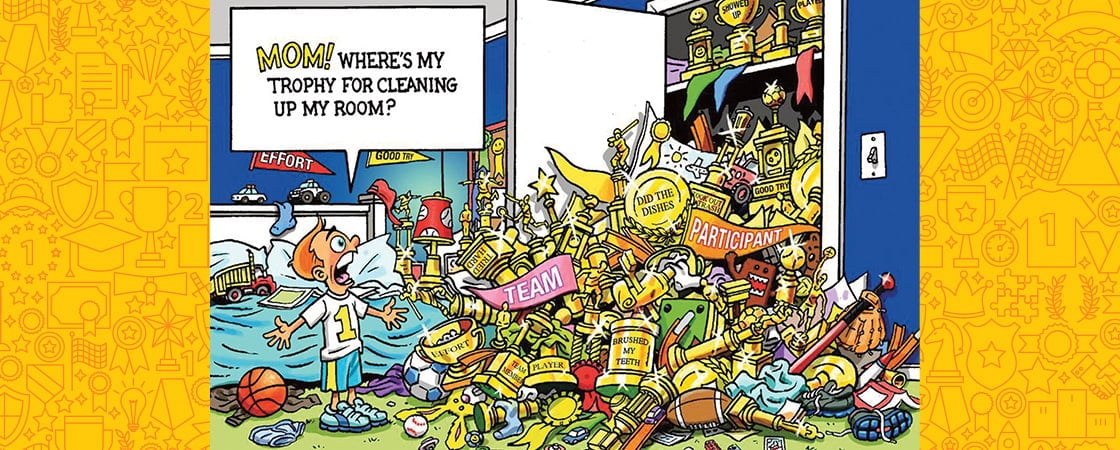Walk into Lucas’s bedroom and you might think you’re in a sports hall of fame. It’s filled with trophies! Little League trophies line the shelves. Basketball trophies and swim ribbons cover the dresser. A football trophy props open the door.
But Lucas is no athletic superstar. In fact, he doesn’t consider himself an athlete at all! Like many kids, Lucas received his trophies by simply showing up to practices and games. And he has just as many awards as the school’s star athletes.
Some people wonder: Is this fair?

